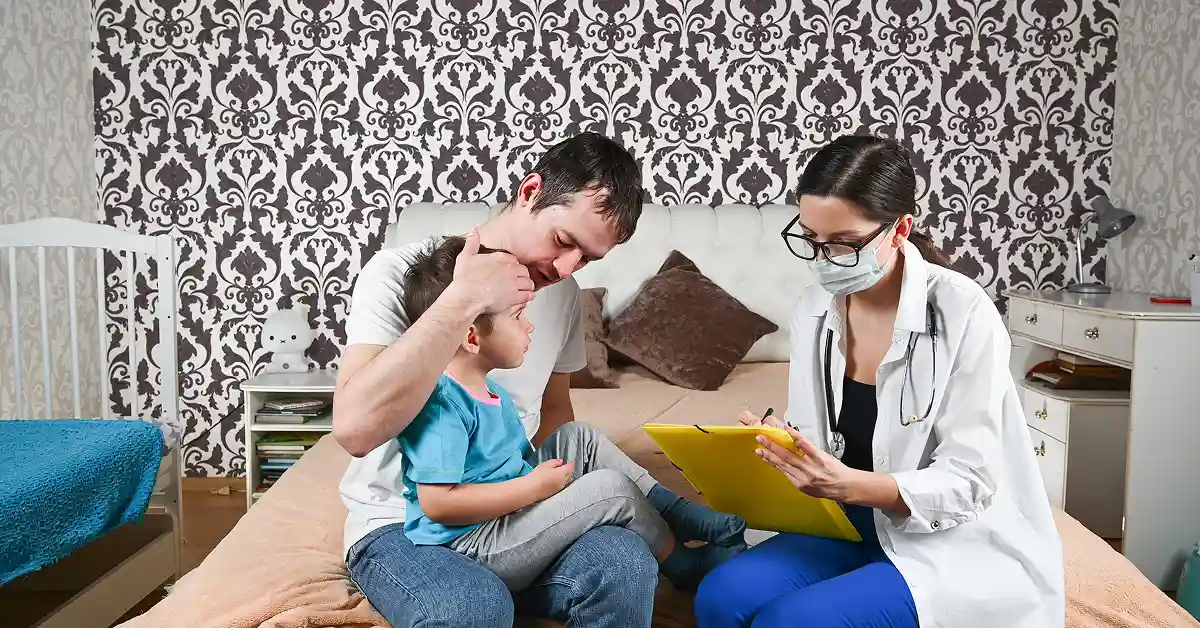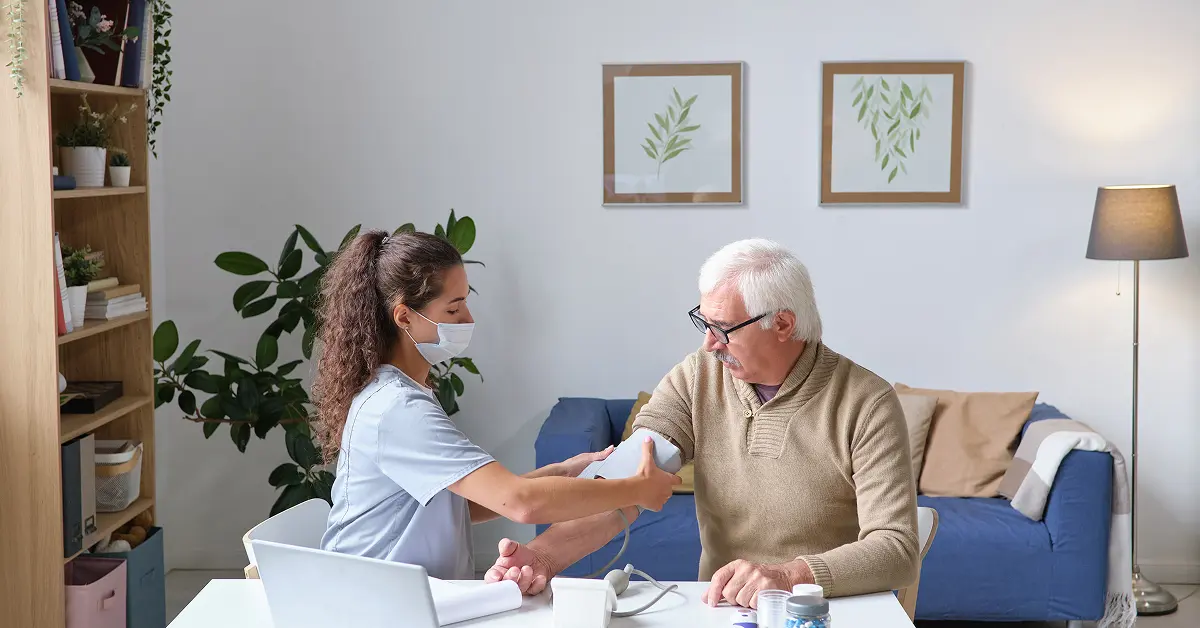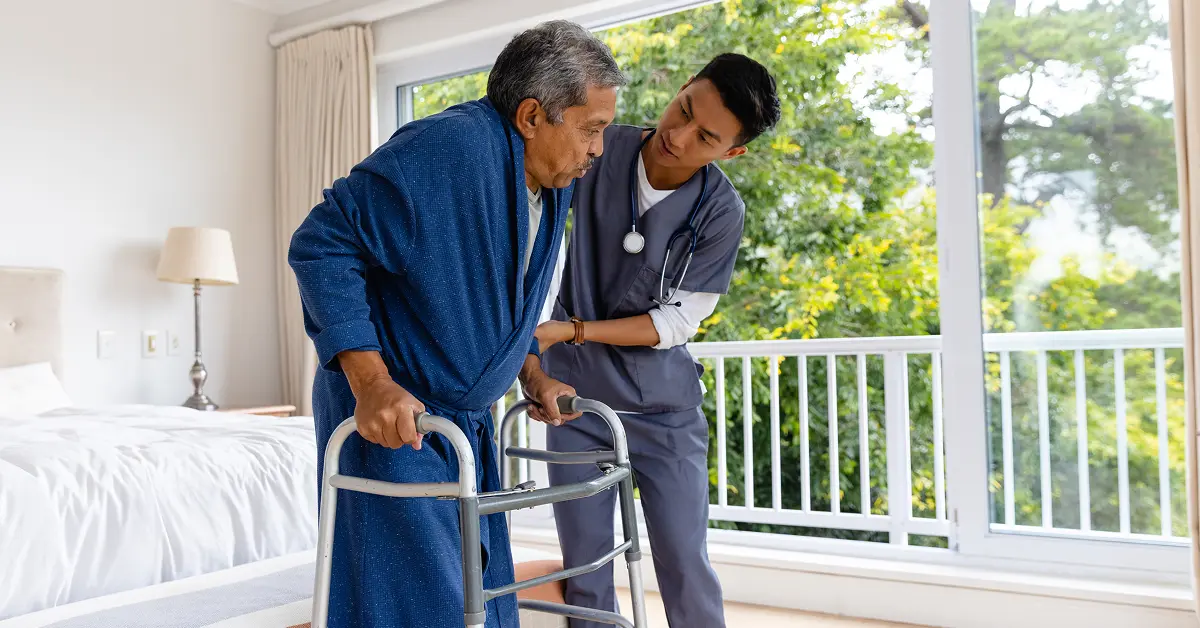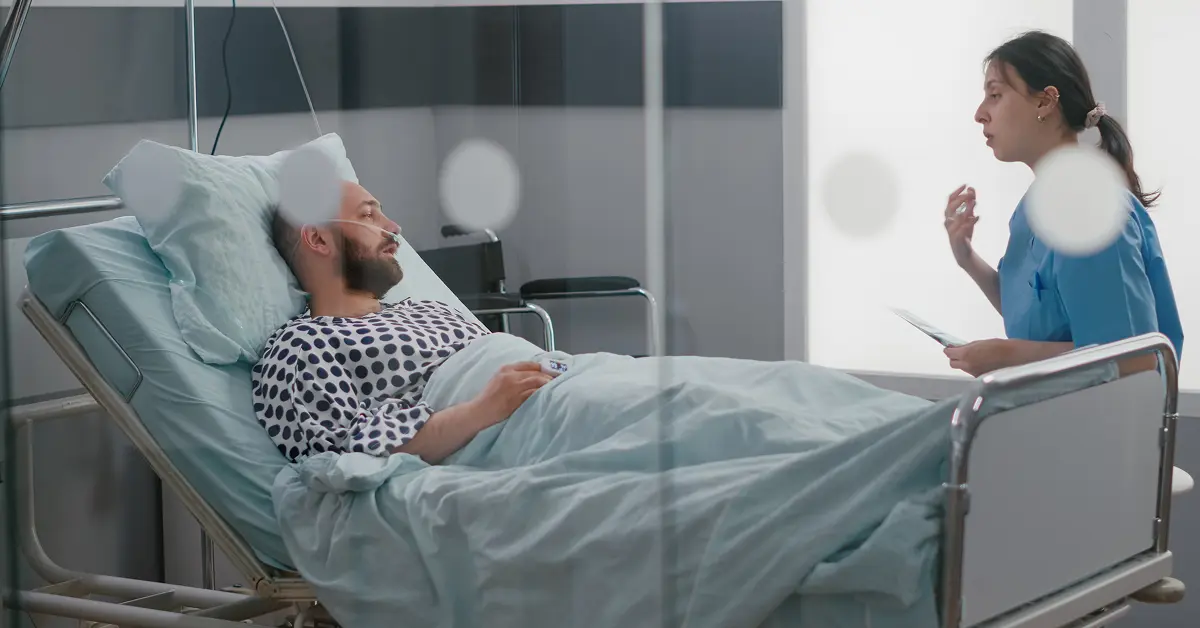When a loved one is discharged from the hospital, it might seem like the hardest part is over. However, in reality, recovery truly begins at home. Whether it’s following surgery, treating a chronic illness, or recovering from a fall, post-Hospital Discharge plays a vital role in ensuring full recovery, avoiding complications, and reducing the risk of readmission.
In India, families often step into the caregiver role without formal training. Knowing what to expect and how to manage this phase effectively can make a significant difference. This blog outlines everything you need to know first about post-discharge care and how to prepare for a safe, smooth transition from hospital to home.
Understand the Discharge Plan
Every hospital discharge should include a comprehensive discharge summary. This document includes:
- Diagnosis and reason for admission
- Procedures or surgeries performed
- Medications to continue
- Follow-up appointment schedules
- Instructions for wound care, mobility, diet, and lifestyle
Ask the doctor or discharge nurse to explain each part clearly. If anything is unclear—whether it’s about a medication’s side effects or dressing a wound—don’t hesitate to ask questions.
Tip: Request discharge instructions in your preferred language and keep an extra copy for reference.
Arrange for Transportation and Mobility Support
Depending on the patient’s condition, standard transportation (like a car or auto) may not be safe. You may need to book an ambulance or special stretcher van. Also, ensure you have:
- A wheelchair or walker ready at home
- Support for stairs or uneven surfaces
- Handrails in the bathroom if mobility is impaired
In Indian homes, staircases and cramped spaces can make movement difficult. Plan ahead and rearrange furniture to create accessible paths.
Set Up a Comfortable Home Recovery Space
A patient recovering at home needs comfort and convenience. Ideally, select a room that is:
- Close to a bathroom
- Well-ventilated and quiet
- Equipped with basic medical supplies like a thermometer, BP monitor, etc.
Make sure the bed is firm, clean, and allows for easy movement. Elevate the patient’s head if advised, and use extra pillows to support joints or prevent bedsores.
Stick to the Medication Schedule
One of the most common reasons for readmission in India is missed or incorrect medication. Keep a written schedule that lists:
- Name of the medicine
- Dosage and time of administration
- Purpose and possible side effects
Set reminders on your phone, or use a pill organiser box if multiple medications are involved. For elderly patients or those with cognitive challenges, this becomes even more crucial.
Diet and Hydration Matter More Than You Think
A patient’s nutrition plan after discharge should match their recovery needs. For example:
- High-protein diets help heal surgical wounds
- Diabetics need controlled sugar intake
- Kidney patients must manage salt and potassium levels
Consult a nutritionist or doctor before preparing meals. In India, home-cooked food is best, but certain traditional dishes may not be suitable during recovery (e.g., oily or spicy items).
Monitor for Warning Signs
Caregivers must be alert to symptoms that may signal complications. Some red flags include:
- High fever (above 101°F)
- Excessive pain, swelling, or bleeding near surgical site
- Shortness of breath or chest pain
- Sudden weakness or slurred speech
Keep emergency contacts handy, including the hospital number and ambulance services. Quick response can save lives.
Schedule and Attend Follow-Up Visits
Don’t skip follow-up appointments, even if the patient seems to be recovering well. These visits allow doctors to:
- Adjust medications
- Monitor healing progress
- Catch complications early
In some cities, home visits by doctors or nurses are available. This is especially helpful for elderly or bedridden patients in metro cities like Mumbai, Delhi, and Bangalore.
Consider Professional Home Healthcare
Depending on the situation, you may benefit from hiring trained caregivers or nurses. In India, there are many reputable home care services that provide:
- Post-surgical wound care
- IV or injection administration
- Physiotherapy
- Palliative care for terminal illness
This is especially helpful when family members are working professionals or lack medical knowledge. Hiring part-time or full-time care can ensure the patient receives proper attention and reduces stress for caregivers.
Keep the Patient Mentally and Emotionally Engaged
Recovery isn't just physical—it’s also emotional. Prolonged bed rest or isolation can cause depression or anxiety, especially among the elderly. You can help by:
- Spending quality time
- Playing soft music or reading to them
- Involving them in light household activities (if permitted)
India’s strong family culture can be a major strength here. Encourage visits from close relatives or friends to lift spirits—but avoid crowding or exposure to infections.
Prevent Re-Hospitalisation
Preventing hospital readmission is the ultimate goal of post-discharge care. Here's how to do it:
- Follow all instructions religiously—no shortcuts
- Stay organised with charts and reminders
- Act quickly if complications arise
- Keep the environment hygienic, especially for surgical or bedridden patients
If needed, create a caregiving checklist or hire a medical coordinator. Prevention is always better (and cheaper) than cure.
Final Thoughts
Post-discharge care is the bridge between illness and recovery. In India, where family is central to caregiving, a well-informed and proactive approach can make a huge difference. Whether you're managing recovery from surgery, stroke, or chronic disease, knowing what to do after discharge can help avoid setbacks and speed up healing.
With planning, compassion, and the right support, your loved one can transition safely from hospital to home—and back to a better life.
Have a loved one being discharged soon?
Consult a home care provider or speak with your doctor today to prepare better. A little care now can prevent big troubles later.
Contents
- Understand the Discharge Plan
- Arrange for Transportation and Mobility Support
- Set Up a Comfortable Home Recovery Space
- Stick to the Medication Schedule
- Diet and Hydration Matter More Than You Think
- Monitor for Warning Signs
- Schedule and Attend Follow-Up Visits
- Consider Professional Home Healthcare
- Keep the Patient Mentally and Emotionally Engaged
- Prevent Re-Hospitalisation
- Final Thoughts
Our 24*7 services
Latest Posts
- What Is Respite Care and Why Is It Important
- Affordable home care for senior citizens in India
- Caring for Seniors with Dementia or Alzheimer's at Home
- Senior Caregiving A Guide for Every Family
- How to Write a Caregiver Resume That Gets You Hired
- How Care After Hospital Discharge Speeds Up Recovery at Home
- How to Get Home Health Care for Seniors Through Medicare
- What Does a Senior Citizen Caregiver Really Do at Home
- How to Care for Elderly Parents with Alzheimer’s or Dementia
- How to Get 24-Hour Care for Seniors at Home



